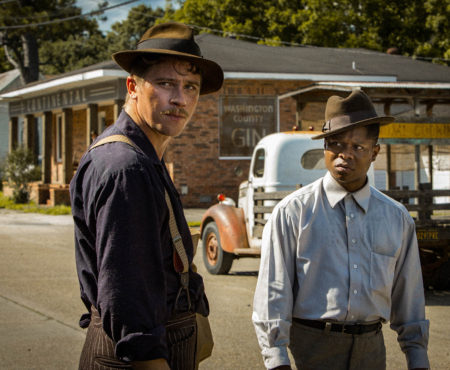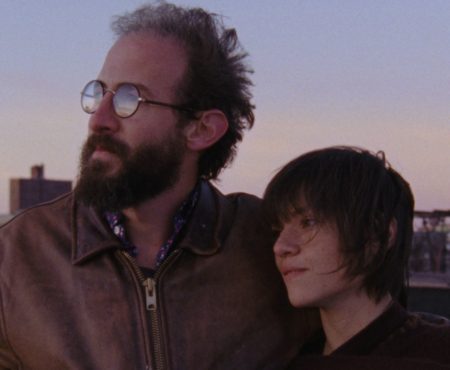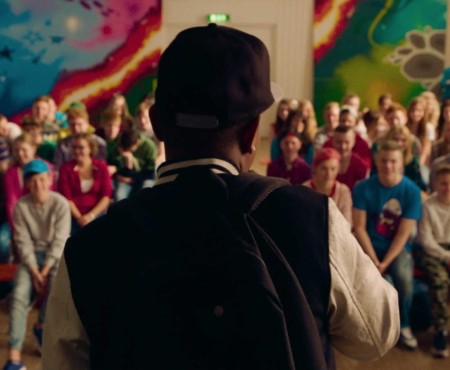Sundance standout Call Me By Your Name took my breath away literally – I ran through a blizzard to catch the screening – and then proceeded to smother me with its deep reservoirs of passion and compassion. I’ll get the superlative adjectives out of the way early. Luca Guadagnino’s film is sumptuous, sultry, and sincere. It’s soaked with sensuality but defined by restrained tension and yearning expectation.
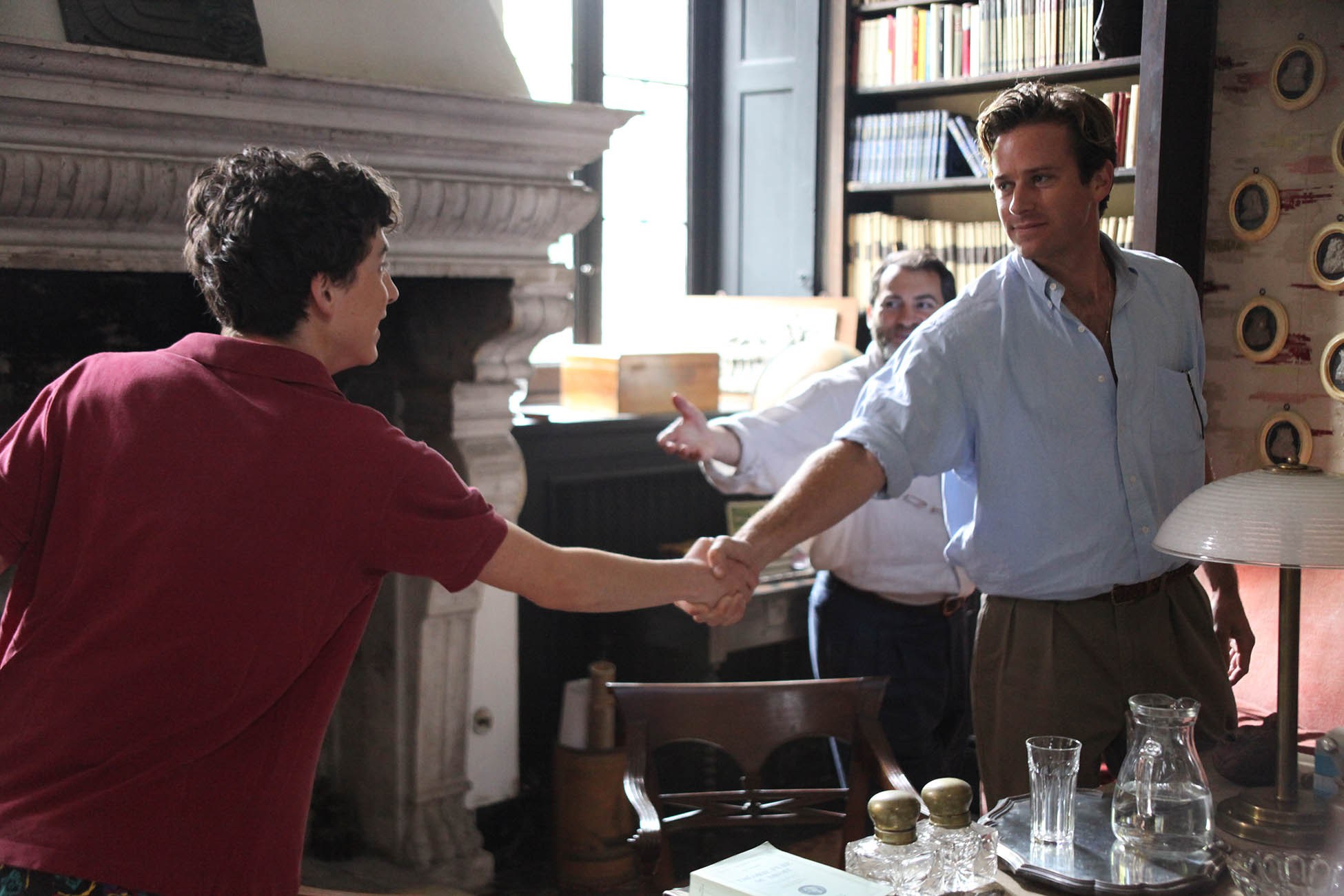
The summer-1983 romance “somewhere in northern Italy” between precocious but shiftless teenager Elio (Timothée Chalamet) and his father’s visiting pupil Oliver (Armie Hammer) begins not with an ignited spark or an immediately aroused desire. It burgeons slowly out of summer boredom, a season whose primary activity Elio describes as “waiting for summer to end.” He spends most days transcribing music by the pool by morning, reading intellectual texts in the garden by afternoon, and bopping around the nightlife scene with a small circle of peers in the area. It’s an idyllic setting ensconced with privilege, to be sure, but the cumulative effect of all this leisure is an overwhelming numbness to feeling. Left to his own devices, Elio spins his wheels – as all teens are wan to do.
From this starting point, parsing Elio’s coming-of-age story from his sexual awakening proves difficult to disentangle. A focus on the former risks flattening the queer narrative in favor of a blanket universality, but dwelling primarily on the latter downplays the many hard truths about life he learns by expressing what he suppresses. Take the moment of Elio’s tentative first profession of interest in Oliver. As they amble around a town square monument, Elio makes an off-handed comment alluding to his sexual naïveté. It’s intentional, of course, and Oliver asks why he would declare such a thing. Elio simply replies, “Because I wanted you to know” and then repeats it several times as Oliver circles the monument to return to his side. At once, he’s giving voice to submerged feelings and learning to assert himself – knowing the risk of rejection or humiliation.
Chalamet pulled off a similar tightrope walk in 2016’s under-the-radar Miss Stevens, playing another sexually stilted youth whose object of adoration and infatuation is an academic superior. He’s superb when playing a character whose mind must play catch-up with his body. Elio’s lithe and lean figure seems built for impetuous movements and quick lurches. This leaves him particularly vulnerable to infatuation with Oliver, whose physique resembles the Grecian statues that Elio’s father describes as “daring you to desire them.” Elio launches headfirst into so many impulses that by the time an inevitable consummation occurs, it’s striking and moving to see the ways in which he pauses and hesitates in anticipation of what’s to come. To love someone else, Elio learns, he must love himself as well. Even – and especially – the parts that are not so easily understood and mastered.
**
The festival environment lends itself to viewing movies in such short succession that parallels in subject matter tend to jump out. (Better that than the alternative: all the movies bleeding together.) Thematic threads in programming are often just a fortuitous fluke of scheduling and availability – had I stayed another day at the festival, this dispatch might have been about depictions of rap on screen at the festival in Patti Cake$ and Roxanne Roxanne. (Just kidding. I’d be horribly unqualified to write about that.)
My reinvigorating viewing of Call Me By Your Name came just 12 hours after another love story, Drake Doremus’ Newness. Unlike the innuendoes and fleeting touches that define the romance of Elio and Oliver, the digital native lovers here dwell in a world of instant gratification. Nicholas Hoult’s pharmacist Martin and Laia Costa’s nurse Gabi open the film with a world of possibilities at their fingertips – literally – on Winx, a thinly veiled knockoff of Tinder. As they perform that app’s version of the “swipe right” function, Doremus quickly cuts away to the person behind that profile moaning in sexual ecstasy. The very act of saying “maybe” to the possibility of hooking up triggers a chemical rush. To begin, Martin and Laia are living, non-ironic embodiments of a quote from the late Carrie Fisher: “Instant gratification takes too long.”
These characters are no punchlines, however. In part, they are cogs in screenwriter Ben York Jones’ sociological examination of relationships in the smartphone era. The very device that brings Martin and Gabi together is also responsible for missed connections, the inhibition of intimacy, and a gluttonous urge to keep looking for something better. As they move from early-morning hookup to roomies to an open relationship, Doremus keeps probing at the structural rot of their pairing: neither is willing to connect to each other through their vulnerabilities. Avoiding those tricky yet necessary conversations about the pains of the past are easy to avoid thanks to the escape mechanisms of their phones.
Newness exceeds the corny “how we live now” tropes, too, by giving us two characters we want to see succeed in breaking their generational baggage. Hoult is particularly affecting as Martin, another role showcasing his talents as an uncommonly sensitive leading man. From Marcus in About a Boy to Nux in Mad Max: Fury Road, he’s never shied away from embracing the vulnerability of his characters. Martin is the film’s emotional core, desperately craving a relationship with Gabi that is monogamous, concentrated and committed. Watching him backtrack on sending a text telling her as much is heartbreaking.
As the means of romantic connection continue rapidly accelerating, our understanding of the very nature of relationships keeps advancing to more abstract, structural levels. In Newness, Doremus forces us to look at how so many are now merely transactional partnerships and the deep dissatisfaction such arrangements can create. I sincerely hope his optimism in the power of the emerging generation to resist these temptations is not misplaced.
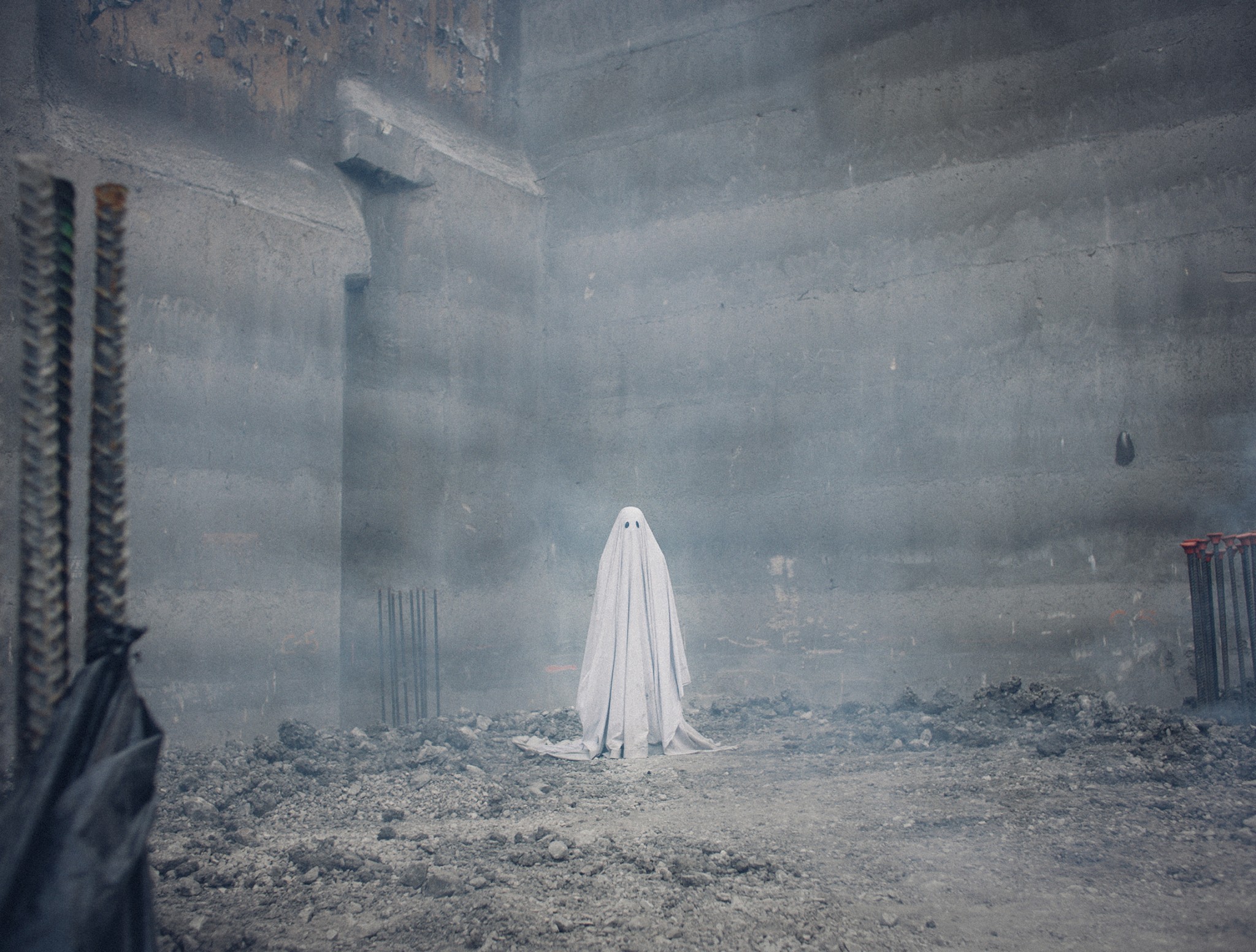
Another 12 hours before seeing Newness, I was, you guessed it, at another love story. Called A Ghost Story, to be precise. (Guess that’s what you must do when both Ghost and Love Story are claimed.)
I knew little about the film prior to A24’s bumper was projected onto the screen, apart from a cryptic tease on director David Lowery’s Instagram and his opening statement at the theater’s podium claiming that he couldn’t wait to talk with us about it afterwards. I intend to convey as little as possible in order not to spoil A Ghost Story for others, although words could scarcely convey what must simply be experienced cerebrally and emotionally.
A Ghost Story feels as timeless as Newness is timely to 2017. This pensive, plaintive drama floats freely through time with the ghost of a man credited as C (Casey Affleck), but otherwise never named in the film. After a car crash takes his life, C emerges from the autopsy table and returns to his old dwelling underneath a white sheet with dark eyeholes. He stays and watches what remains of the time his partner M (Rooney Mara) spends there and then some – imagine spending an entire film in Kubrick’s Renaissance Room from 2001: A Space Odyssey. On a moment-to-moment basis, A Ghost Story captivates simply (though not entirely) for lack of knowledge over where it might go next.
The ghost mills about, though we are never entirely sure what motivates his actions. He’s a blank slate onto which we can project our own ideas and assign our desired motivations. It is abundantly clear that he does share a special bond with both M and the plot of land they bought together, one with a history that transcends the impermanence of life that Lowery so carefully depicts. He does with image and montage what a film like The Curious Case of Benjamin Button, to pick an easy example, does with narrative. Lowery introduces a narrative conceit to remove us from our traditional comprehension of time and leaves us to ponder what forces still operate in these conditions.


















